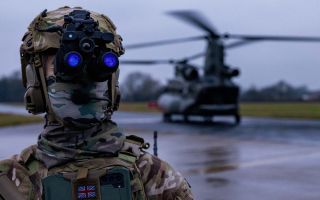Tri-Service
UN Urged to Ban "Killer Robots"
A human rights organisation has called on the United Nations to implement a ban on 'killer robots'.
A Human Rights Watch report argues that programmers, manufacturers, and military personnel could all escape liability for unlawful deaths and injuries caused by fully autonomous weapons because of obstacles in proving who was legally responsible for their actions.
It states that the next generation of weapons in military arsenals could be machines that would select and destroy specific targets without human intervention.
Arguing that prototypes like the Taranis aircraft, currently being developed by BAE systems for the British military, could autonomously fly on intercontinental missions - paving the way for such weapons.
Unlike remote-controlled drones, fully autonomous weapons do not exist yet, so the call is to pre-emptively ban their development, production, and use.
A precedent was for such a ban was set in 1995 when The Convention on Conventional Weapons banned blinding lasers.
See below for a demonstration of the United States' DARPA Legged Squad Support System (LS3), which can autonomously follow military personnel through rugged terrain whilst carrying their gear:
Bonnie Docherty, senior Arms Division researcher at Human Rights Watch, said:
“No accountability means no deterrence of future crimes, no retribution for victims, no social condemnation of the responsible party. The many obstacles to justice for potential victims show why we urgently need to ban fully autonomous weapons.
“A fully autonomous weapon could commit acts that would rise to the level of war crimes if a person carried them out, but victims would see no one punished for these crimes. Calling such acts an ‘accident’ or ‘glitch’ would trivialize the deadly harm they could cause.
“The lack of accountability adds to the legal, moral, and technological case against fully autonomous weapons and bolsters the call for a preemptive ban,” she added.
The report, jointly published with Harvard Law School’s International Human Rights Clinic, was issued ahead of a multi-lateral meeting on the weapons at the United Nations in Geneva.









